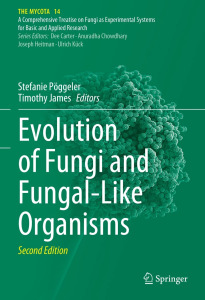Evolution of Fungi and Fungal-Like Organisms (2023)- Stefanie Pöggeler, Timothy James
4 800,00 Kč vč. DPH
4 800,00 Kč bez DPH
|
Country | % VAT (books) | % VAT | |
|---|---|---|---|
| DE | 7 | 19 | |
| HU | 5 | 27 | |
| AUT | 10 | 20 | |
| BE | 6 | 21 | |
| BGR | 9 | 20 | |
| DNK | 25 | 25 | |
| EST | 9 | 24 | |
| FIN | 14 | 25,5 | |
| FR | 5,5 | 20 | |
| HR | 5 | 25 | |
| IRL | 0 | 23 | |
| IT | 4 | 22 | |
| CY | 3 | 19 | |
| LTU | 9 | 21 | |
| LV | 5 | 21 | |
| LU | 3 | 17 | |
| MT | 5 | 18 | |
| NLD | 9 | 21 | |
| PL | 5 | 23 | |
| PR | 6 | 23 | |
| RO | 11 | 21 | |
| GRC | 6 | 24 | |
| SVK | 5 | 23 | |
| SI | 5 | 22 | |
| ESP | 7 | 21 | |
| SWE | 6 |
25 |
Cena platí pouze pro české zákazníky. Vzhledem k novému nařízení Evropského parlamentu musí být konečná cena od 1. července 2021 kalkulována podle země konečného určení. Platnou sazbu DPH ve vaší zemi naleznete v tabulce výše (výše DPH se může v jednotlivých státech v rámci času pohybovat).
https://ec.europa.eu/taxation_customs/tedb/#/vat-search/vat-search-result
Záruka (měsíce): 24
Dostupnost: Do 14 dnů
Sequence analyses of numerous fungal genomes over the past two decades have provided us with extensive insights into the phylogenetic relationships of fungi and the distribution of genes and their inferred functions, across the fungal kingdom. It is now possible to answer questions about the origin of the fungal kingdom and fungal evolution with an analytical precision that was not possible before.
This fully revised and updated 2nd edition of The Mycota, Vol. 14, addresses major aspects of fungal evolution. The book is divided into four sections covering the following main topics:
• Evolutionary roots of fungi
• Evolution of pathogenic strategies
• Evolution of mutualistic interactions
• Evolution of metabolism and development in fungi
Fungi are among the oldest eukaryotic groups in the living world. The aim of this book is to better understand the history and importance of fungi, as well as the characteristics that distinguish them from their sister group, the metazoans, and other fungus-like groups such as the slime molds and oomycetes. Many fungal species are important pathogens of animals and plants and have distinct but parallel pathogenicity strategies. Mutualistic interactions of fungi with other organisms are crucial for their survival in different ecological niches and have a great influence on their evolution and the design of their genomes. Metabolism is one of the most important features of life, and the diversity of metabolic processes is best understood by considering evolution. Studies of fungal metabolism have traditionally focused on metabolites of particular interest, namely mycotoxins, pathogenicity factors, antibiotics, and other compounds with interspecific activity.
This volume will be of great interest to mycologists, evolutionary biologists, and fungal geneticists, as well as to lecturers and students of microbiology and mycology.
ISBN: 978-3-031-29198-2
hardcover
language: English
322 pages
 čeština
čeština




